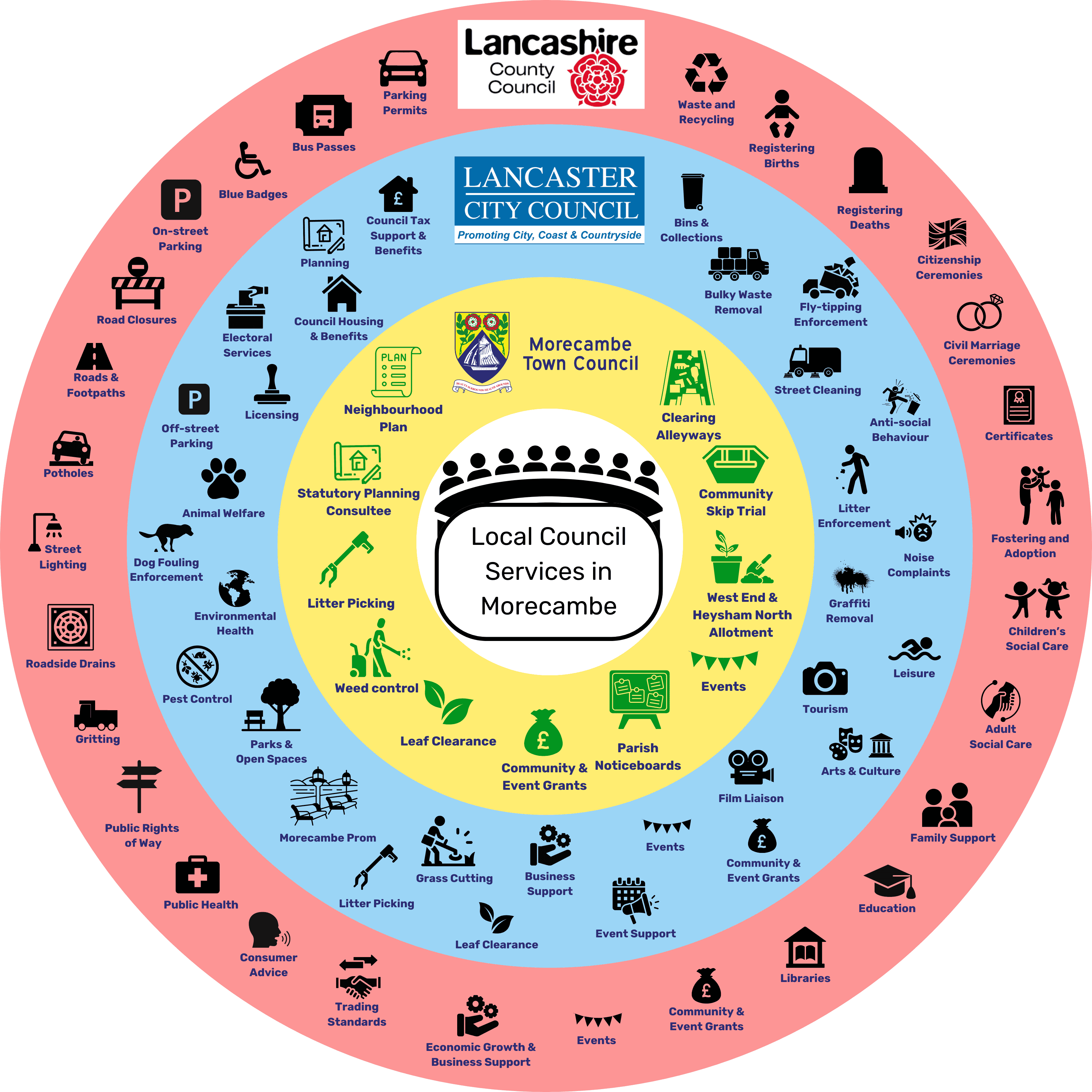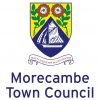Morecambe is a coastal town situated in the North West of England. Close to cities such as Lancaster, Preston and Manchester to the south and the Lake District to the north, it sits comfortably between city life and the beautiful countryside. This seaside town is well known for its outstanding views across Morecambe Bay, potted shrimps and the birthplace of one of the UK’s best loved comedians, Eric Morecambe.
Morecambe is currently governed by three tiers of Local Government:
- Morecambe Town Council
- Lancaster City Council
- Lancashire County Council
Morecambe Town Council delivers services within the Morecambe Town Council boundary area, including awarding grants to local community groups and festival/event producers, organising events of its own, and working with Lancaster City Council and Lancashire County Council to maintain and improve public spaces around the town. With Government keen to see more services delivered locally, it is possible Morecambe Town Council will become more directly involved in a wider array of services and take on further responsibilities.

For election purposes the town is divided into 11 wards. Morecambe Town Council has 26 elected members (Councillors), each elected for a term of four years. They represent local people, helping to provide local amenities and facilities, and are consulted regularly by county and district councils on matters which affect the local area, such as planning applications. Councillors have an active interest and concern for their local community and are not paid. Like their counterparts on district and county councils they have to abide by the Local Code of Conduct and openly make their declarations of interest.
The Chairman of the Council is elected annually in May.
History of local government in Morecambe
The area was officially legislated in 1889 and an Urban District Council was formed in 1894 – freeing Morecambe completely from its governance by the Borough of Lancaster.
In 1928 the Corporation of Morecambe amalgamated with Heysham Urban District Council to form the Municipal Borough of Morecambe and Heysham.
A re-organisation of local government in 1974 saw the Borough form part of the area once again administered by Lancaster City Council. Under the new Local Government Act 1972 urban district councils were replaced with new larger districts and where appropriate new parish councils were created for the towns.
Morecambe Town Council was not formed until much later in May 2009, following a successful local campaign.
